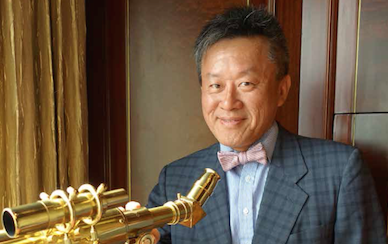‘Financial crisis was planned to rescue bankers’: Nobu Su

In his increasingly bizarre series of rants, Nobu Su, boss of financially troubled Taiwanese line TMT, has issued a release claiming the financial crisis was “planned to rescue bankers”.
The TMT chairman has written to senior management at RBS railing over an $85m margin call dating back to August 2008.
Su believes that the margin call was related to the AIG bailout rescue of 2008, with TMT shares indirectly insuring the emergency syndication loan by JPMorgan Chase and Goldman Sachs, or the PDCF (Prime Dealer Credit Facility) accepted by New York FRB to lend over $200bn.
Su commented: “The financial crisis was not some kind of unfortunate accident… The convenient timing of Goldman Sachs and Morgan Stanley changing their license to ‘bank holding companies’ on September 23, 2008, to allow themselves to receive almost U$40bn dollars from the New York Fed without due diligence is in violation of official procedures and frankly criminal. The way these two institutions were treated radically differently from others, with lavish rescues and no consequences, demonstrates that something is clearly amiss.”
He continued in arch conspiracy theory mode: “It appears to me that the bending of rules was a recurring theme throughout the crisis… Warren Buffet said derivatives are financial weapons of mass destruction, but my case proves that TMT’s balance sheet, which appears to have been hijacked by RBS, played a key role in the survival of the global banking system in the financial crisis. It was planned to receive unlimited funds from world central banks following quantitative easing policy until today.”
Su, who has been fighting court battles on multiple fronts since declaring bankruptcy, has reckoned for a long time market forces were beyond his control for his mistimed investments.
One of the industry’s most enigmatic characters, far more technically astute than most other shipowners (pioneering previously unheard of ship conversions, for example), Su got big by betting big. He was the largest FFA player during the boom years (accounting for 15% of all trades at his peak) and he was right about Chinese iron ore imports, but he grew too big, too fast and when things turned, he had nowhere to go.
During the boom era he was the game in town, fêted by every broker and snake oil salesman and, looking back, it’s easy to argue he just could not stop believing what they said. Come the financial crisis, like the tale of the Emperor’s New Clothes, Su was exposed and bereft.
